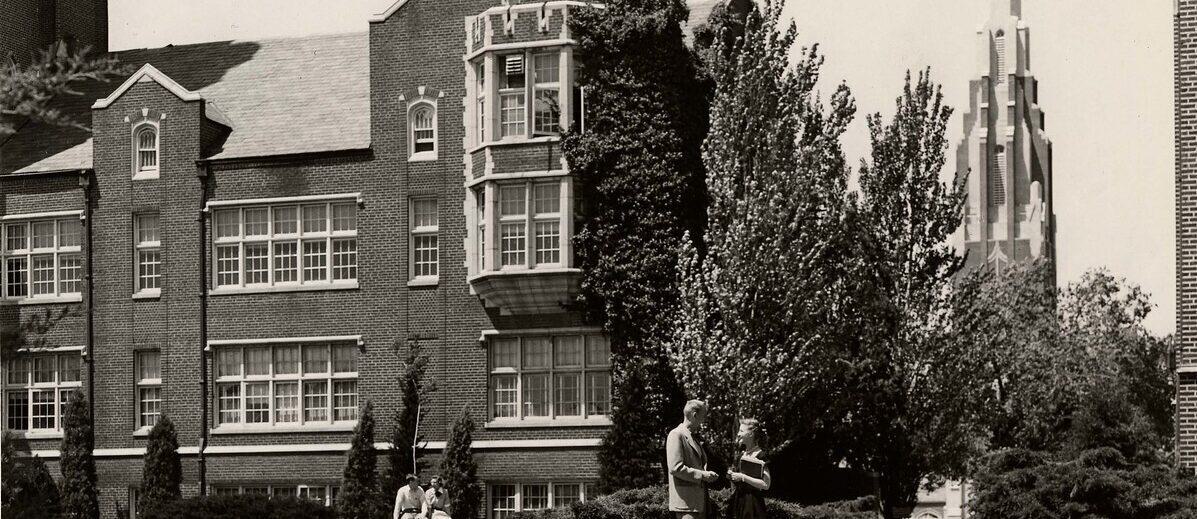Oklahoma City University was chartered as Epworth University on September 1, 1904. The first students attended class in one all-purpose building. One hundred and sixteen students enrolled that fall. The original building is still standing and forms part of Epworth United Methodist Church in Oklahoma City.
Surviving the storms of financial difficulties, the university moved to Guthrie in the fall of 1911 and changed its name to Methodist University of Oklahoma. In 1922, the name was changed to Oklahoma City College. The college was relocated to its present location in Oklahoma City where the current administration building housed both classrooms and student dormitories. In 1924, the college was renamed Oklahoma City University.
OCU emerged from the dark days of the Depression damaged, but intact. The end of the war in 1945 brought about an unprecedented surge in enrollment. As a result, there was an extraordinary amount of development through the remainder of the ‘40s that included the Gold Star Building, which memorialized the Americans felled by World War II.
The ’50s got off to a great start with the university achieving its long-time goal of earning accreditation from the North Central Association of Colleges and Secondary Schools and merged with the Oklahoma City College of Law. Through the ’60s, university leaders and faculty worked together to create courses that approached lofty topics from a variety of perspectives and taught students to look at life in a new way. OCU’s spiritual life was also under construction and the Bishop W. Angie Smith Chapel was dedicated in 1968.
The 1970’s brought serious financial troubles for the university, but by 1976, Bishop Paul Milhouse helped guide the university to receive donations from the Methodist Church that amounted to more than $3 million by 1980. Next, Jerald Walker, an OCU alumnus, became president in 1979. Quickly, he made a series of changes that improved facilities, created new programs and aggressively recruited students. By the summer of 1981, OCU was not only debt-free, but that it also had turned a profit for the first time since 1975.
The turn of the century ushered in great years for the university. In 2001, Tom McDaniel became president and his leadership transformed the university. The enhancement of university facilities included renovations to the Ann Lacy Visitor and Admissions Center, the Norick Art Center, Tom and Brenda McDaniel University Center, and the Edith Kinney Gaylord Center and new construction of the Bass Music Center, Meinders School of Business and United Methodist Residence Hall.
Kenneth R. Evans was named President in 2021. OCU strives to be “Oklahoma City’s University” and has pledged to be a partner to the community in meeting the economic and cultural needs of our citizens through premier education programs.

